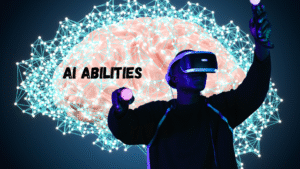Artificial Intelligence in Emergency Medicine: Transforming Patient Care
Introduction
AI (artificial intelligence) is the technology that is widely known to transform a wide range of industries, healthcare inclusive. Somehow, this update brings hope to the dire state of emergency medicine. In AI healthcare tools, emergency medicine receives unprecedented support. These tools drive enhanced patient care, optimized operations, and improvement of outcomes which saves lives with the aid of AI in making accurate and timely decisions. AI is now a powerful partner in support of healthcare professionals ranging from triage to anticipating critical care requirements.
An AI algorithm performed better than human prediction in critical care need forecasting by attaining an AUC of 0.867. It also surpassed the systems relying on human judgment, which were the Emergency Severity Index (AUC 0.839) and the Korean Triage and Acuity System (AUC 0.824) (Scandinavian Journal). The potential of AI surpassing human performance, in tasks deemed vital particularly in critical decision-making sustains the still-emerging technology in emergency medicine. There is certainly AI products ranging from application, benefits, and prospects to be leveraged in emergency medicine which indeed point at this technology spearheading radical change in the delivery of emergency care services.

Why Emergency Medicine Needs Artificial Intelligence
The gravest problems in emergency medicine include congested EDs, prolonged patient queuing, and increased pressure for timely high-stakes decision making. The accurate and rapid analysis of enormous datasets by AI in emergency medicine helps extends timely precision-driven care while decisively addressing these challenges.
For instance, AI-based triage systems are able to prioritize patients and reduce delays for critical cases. In fact, KATE, The Knowledge-Assisted Triage Engine, is used in 16 hospitals across the U.S. and has outperformed nursing triage by 27% over KATE’s baseline accuracy (PMC Article). Furthermore, AI manages physician cognitive overload by automating documentation, which is a mundane work task, freeing up time that can be devoted to patient care. Hence, AI enhances operational efficiency along with the quality of care in intensively demanding settings.
Moreover, AI offers support in managing resources such as bed capacity through real-time data monitoring during peak periods, including surge periods during the COVID-19 pandemic. As a result of strengthening operational management during these critical times, AI in emergency medicine is becoming revolutionary.
Essential Services in AI for Emergency Medicine
Prehospital Care and Triage
In pre-hospital settings, AI empowers patients with self-triage tools. Symptom checkers, such as those offered by Babylon Health, utilize probabilistic and deep learning algorithms to assess the urgency of symptoms within context of the patient’s medical history (Babylon Health). While these services do expand access to medical advice, validation studies are mixed and some studies show no significant improvement in accuracy over time (PMC Article). Regardless, these automated self-triage tools still enable patients to make more informed decisions faster, which is helpful prior to arriving at the ED.
Emergency Medical Dispatch (EMD)
The application of artificial intelligence in emergency medicine is transforming emergency medical dispatch (EMD) by improving data collection, call prioritization, and triage. Corti’s systems, for example, utilize ASR and deep learning algorithms to interpret the speech of callers, recognizing conditions like OHCA faster than human dispatchers (PMC Article). Retrospective studies validate the speed at which Corti detects OHCA, but they highlight the need for further validation regarding other conditions. Moreover, RapidSOS and other similar platforms enhance the accuracy of ambulance dispatch using statistical machine learning (PMC Article).
Emergency Department (ED) Operations
In the field of EDs, artificial intelligence in emergency medicine facilitates registration, redirection, and triage processes. The integration of EMD information with ED records promotes continuity of care, achieved through logistic regression models that estimate 99.4 percent sensitivity (PMC Article). Triage systems such as KATE are more precise and reduce the documentation burden, enabling nurses to spend more time on patient care. Acceptable AI-driven models for real-time bed management have been put forth, which adapt epidemiological factors into their resource optimization calculations (PMC Article). These advancements, along with others, foster operational efficiency alongside enhanced patient experience.
Choosing the Right AI Partner for Emergency Medicine
Choosing an AI partner for emergency medicine demands aligning with the specific requirements of the ED, as well as the goals of the institution. Here’s a checklist for decision-making:
- Expertise: The provider should understand emergency medicine workflows and challenges.
- Scalability: Solutions must handle growing data and user demands.
- Transparency: The algorithms used in the most sensitive processes, such as triage, must be explainable.
- Validation: Focus on proven solutions, such as those undergoing KATE accuracy-verifying peer validation.
For instance, a hospital choosing an AI triage system must confirm that its accuracy claims hold in real-world evaluations and that it communicates effectively with electronic health record systems. These criteria would permit EDs deploying artificial intelligence in the specialty of emergency medicine to have trust in the systems fulfilling their objectives.
Trends That Will Shape the Use Of AI in Emergency Medicine
The role of artificial intelligence in emergency medicine is very promising, especially with trends that are likely to improve care delivery. Public health surveillance has emerged as a vital area using AI to monitor outbreaks of disease using emergency department (ED) and emergency medical department (EMD) data. Advanced NLP models such as Transformers are capable of sifting through EHRs to identify signals that would help in decreasing response time to epidemics (PMC Article).
The “digital hospital” model, in which AI monitors real time bed and resource availability, stands to greatly improve ED efficiency. Proposed systems account for epidemiological considerations to models optimizing resource utilization (PMC Article). AI can also enhance the patient experience through such means as gamification and virtual reality, making time distort and waiting more enjoyable.
Ethical considerations such as bias in the data used for training are very important, however. Research indicates that weakly defined AI could heighten existing inequities in health care (PMC Article). These are greatly AI-dependent systems that are not implemented responsibly do not maximize the advantages of AI.
Conclusion
The use of artificial intelligence in emergency medicine is not a fanciful thought confined to the future, but rather is active in today’s world. AI tools like KATE and Corti are changing the way we think about triage, dispatch, and ED operations. There is immense potential in EDs with regard to accuracy and reduced wait times, efficiency in patient flow, and the ever-pressing workload faced by physicians.
The evolving nature of emergency medicine demands that healthcare leaders adopt the responsible application of artificial intelligence frameworks in order to ensure that solutions focused on transparency, validation, and scalability are selected. The promise of these technologies heralds significant improvements in immediate patient outcomes, operational workflows, and overall care efficiency. The time to explore AI solutions is now, if one is hoping to remain relevant in the fast advancing world of emergency medicine.
Key Citations
- AI in Emergency Medicine: Current Applications and Challenges
- The Future of AI in Emergency Medicine
- Future of AI in Emergency Medicine by EMRA
- AI in Emergency Medicine: Beyond the Hype
- Applications of AI in Emergency Medicine
- AI Algorithm to Predict Critical Care in EMS
- Babylon Health Symptom Checker
/galaxy-s26-gets-smarter-samsung-taps-perplexity-ai-for-future-phones/
/nintendo-switch-2-release-date-price-and-features/
/playstation-state-of-play-june-2025-what-you-should-prepare-for/
/nintendo-switch-2-at-walmart-here-is-how-you-can-pre-order-it/
/apple-ios-26-expected-features-after-the-upcoming-announcement/



















Post Comment